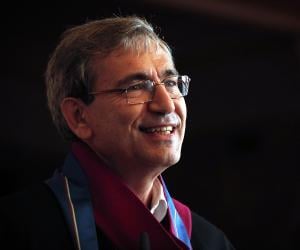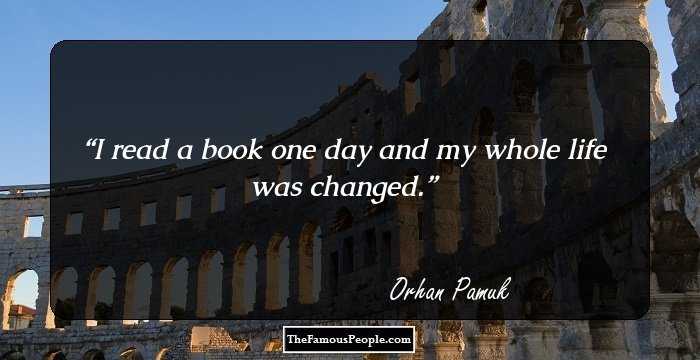
I read a book one day and my whole life was changed.
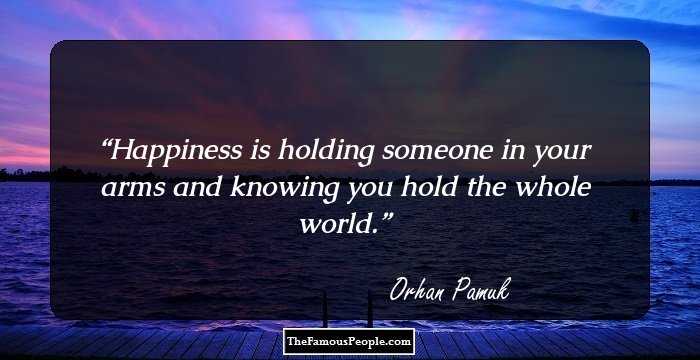
Happiness is holding someone in your arms and knowing you hold the whole world.
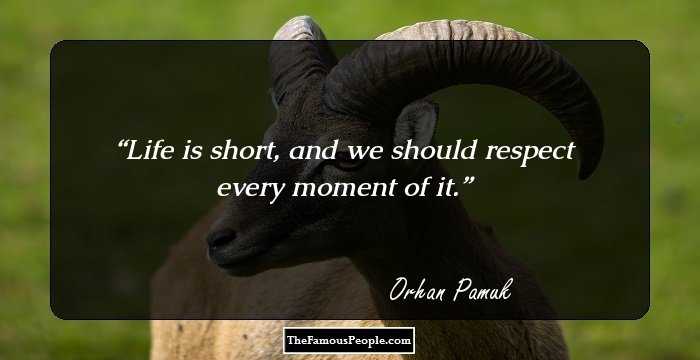
Life is short, and we should respect every moment of it.
Oscar Wilde always makes me smile - with respect and admiration. His short stories prove that it is possible to be both sarcastic, even cynical, but deeply compassionate. Just seeing the cover of one of Wilde's books in a bookshop makes me smile.
Culture is mix. Culture means a mix of things from other sources. And my town, Istanbul, was this kind of mix. Istanbul, in fact, and my work, is a testimony to the fact that East and West combine cultural gracefully, or sometimes in an anarchic way, came together, and that is what we should search for.
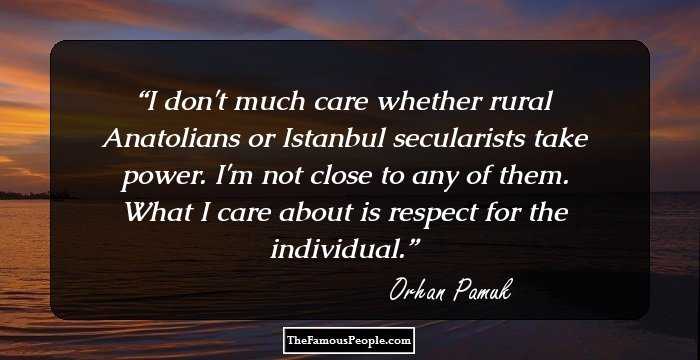
I don't much care whether rural Anatolians or Istanbul secularists take power. I'm not close to any of them. What I care about is respect for the individual.
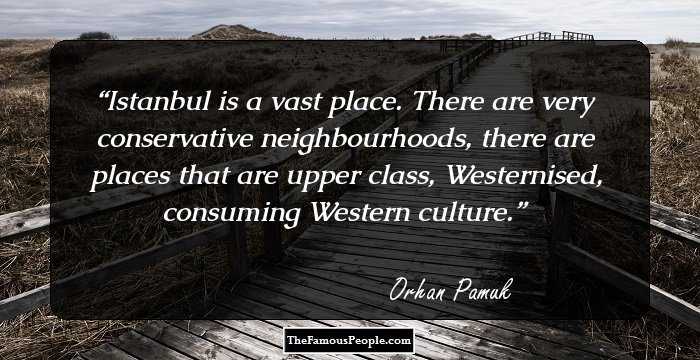
Istanbul is a vast place. There are very conservative neighbourhoods, there are places that are upper class, Westernised, consuming Western culture.
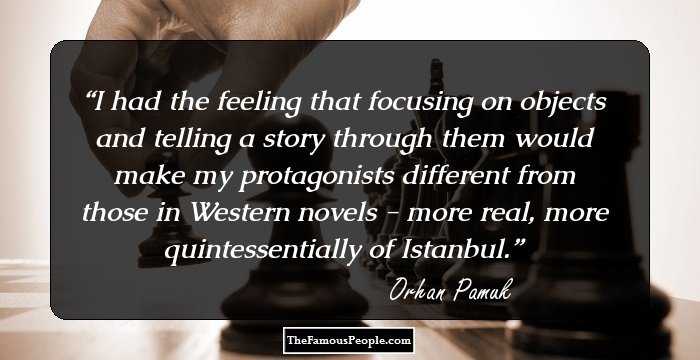
I had the feeling that focusing on objects and telling a story through them would make my protagonists different from those in Western novels - more real, more quintessentially of Istanbul.
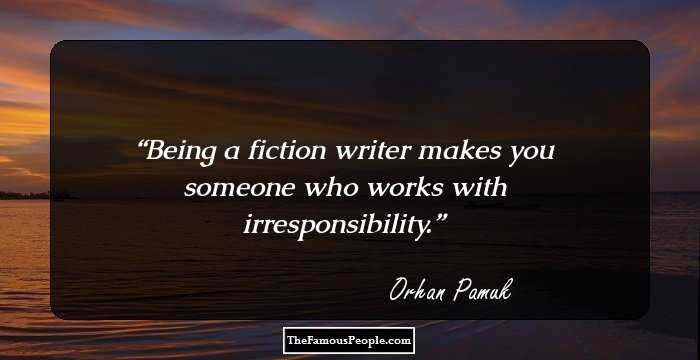
Being a fiction writer makes you someone who works with irresponsibility.
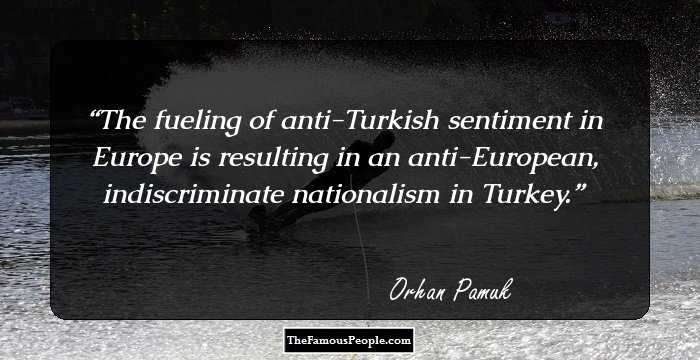
The fueling of anti-Turkish sentiment in Europe is resulting in an anti-European, indiscriminate nationalism in Turkey.
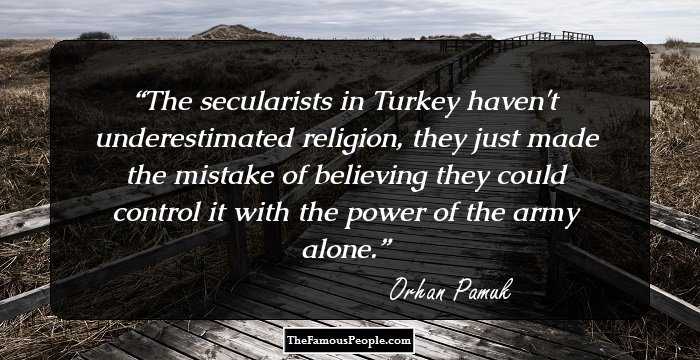
The secularists in Turkey haven't underestimated religion, they just made the mistake of believing they could control it with the power of the army alone.
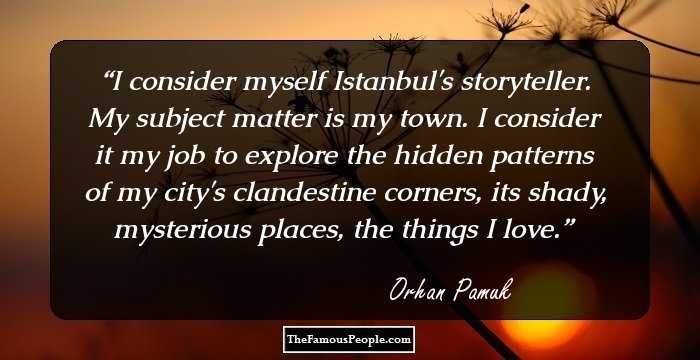
I consider myself Istanbul's storyteller. My subject matter is my town. I consider it my job to explore the hidden patterns of my city's clandestine corners, its shady, mysterious places, the things I love.
From a very young age, I suspected there was more to my world than I could see: somewhere in the streets of Istanbul, in a house resembling ours, there lived another Orhan so much like me he could pass for my twin, even my double.
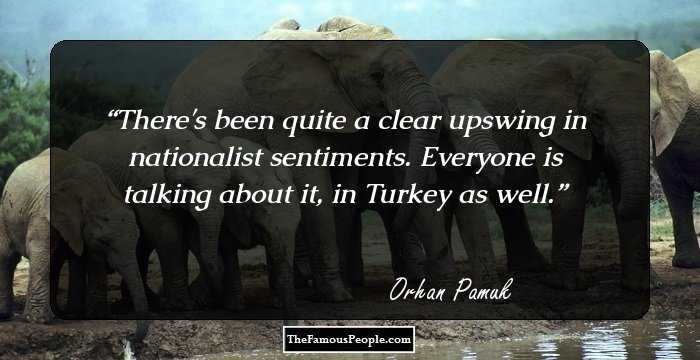
There's been quite a clear upswing in nationalist sentiments. Everyone is talking about it, in Turkey as well.
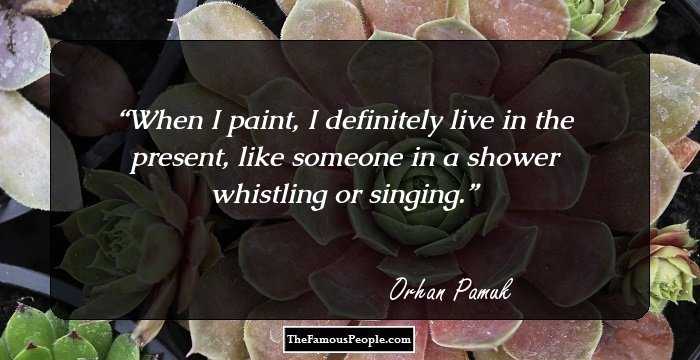
When I paint, I definitely live in the present, like someone in a shower whistling or singing.
When the whole world reads your books, is there any other happiness for a writer? I am happy that my books are read in 57 languages. But I am focused on Istanbul not because of Istanbul but because of humanity. Everyone is the same in the end.
I write because I have an innate need to. I write because I can't do normal work. I write because I want to read books like the ones I write. I write because I am angry at everyone. I write because I love sitting in a room all day writing. I write because I can partake of real life only by changing it.
Modernity means overabundance. We are living in the age of mass-produced objects, things that come without announcing themselves and end up on our tables, on our walls. We use them - most of us don't even notice them - and then they vanish without fanfare.
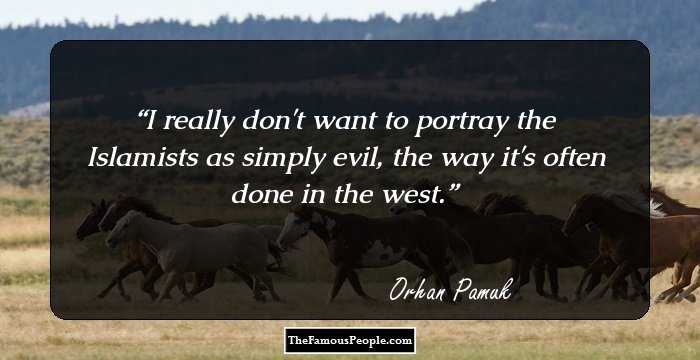
I really don't want to portray the Islamists as simply evil, the way it's often done in the west.
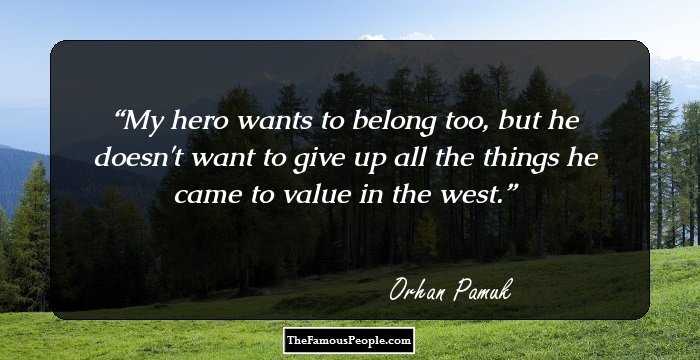
My hero wants to belong too, but he doesn't want to give up all the things he came to value in the west.
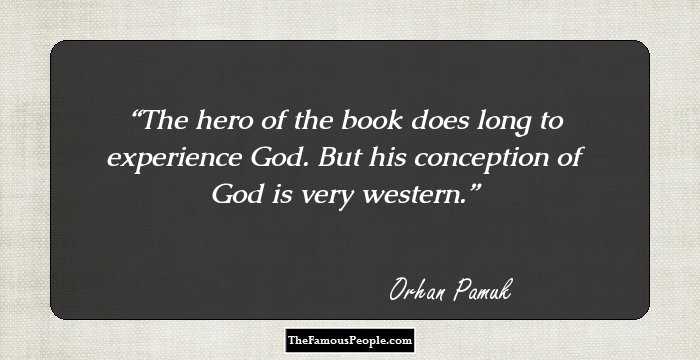
The hero of the book does long to experience God. But his conception of God is very western.
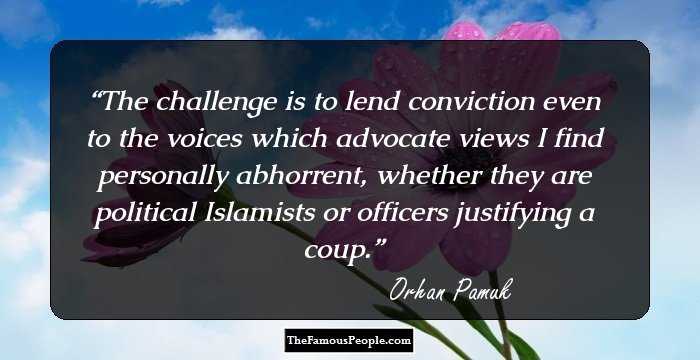
The challenge is to lend conviction even to the voices which advocate views I find personally abhorrent, whether they are political Islamists or officers justifying a coup.
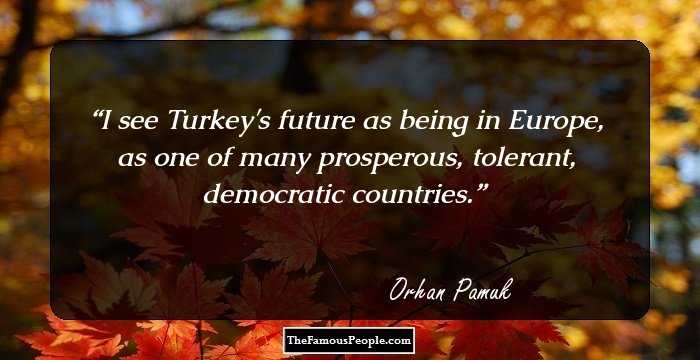
I see Turkey's future as being in Europe, as one of many prosperous, tolerant, democratic countries.
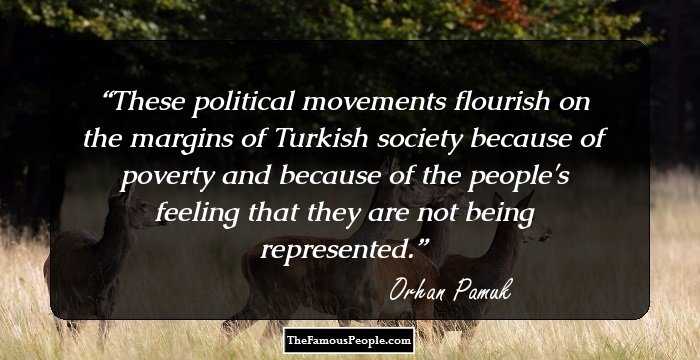
These political movements flourish on the margins of Turkish society because of poverty and because of the people's feeling that they are not being represented.
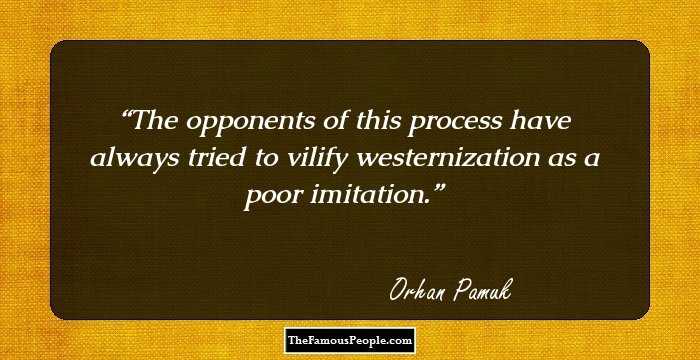
The opponents of this process have always tried to vilify westernization as a poor imitation.
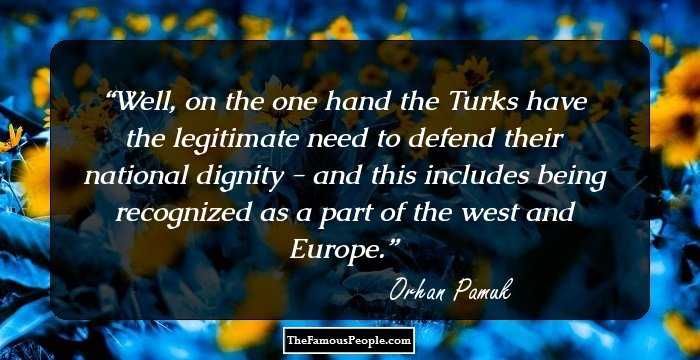
Well, on the one hand the Turks have the legitimate need to defend their national dignity - and this includes being recognized as a part of the west and Europe.
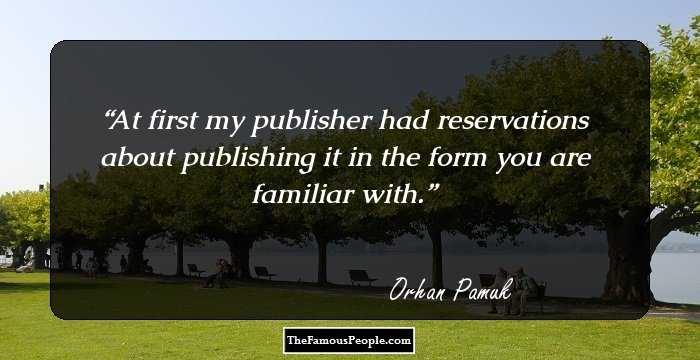
At first my publisher had reservations about publishing it in the form you are familiar with.
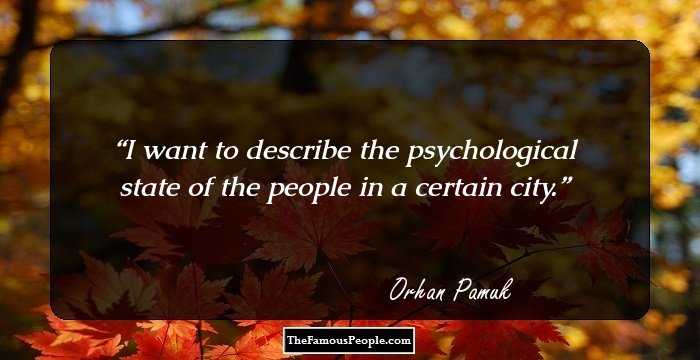
I want to describe the psychological state of the people in a certain city.
One side of me is very busy paying attention to the details of life, the humanity of people, catching the street voices, the middle-class, upper-middle-class secret lives of Turks. The other side is interested in history and class and gender, trying to get all of society in a very realistic way.
I wanted to tell a romantic and dark side of Ottoman history that was also slightly political, saying to the previous generation of writers, 'Look, I'm interested in Ottoman things, and I'm not afraid of it, and I'm doing something creative.'

